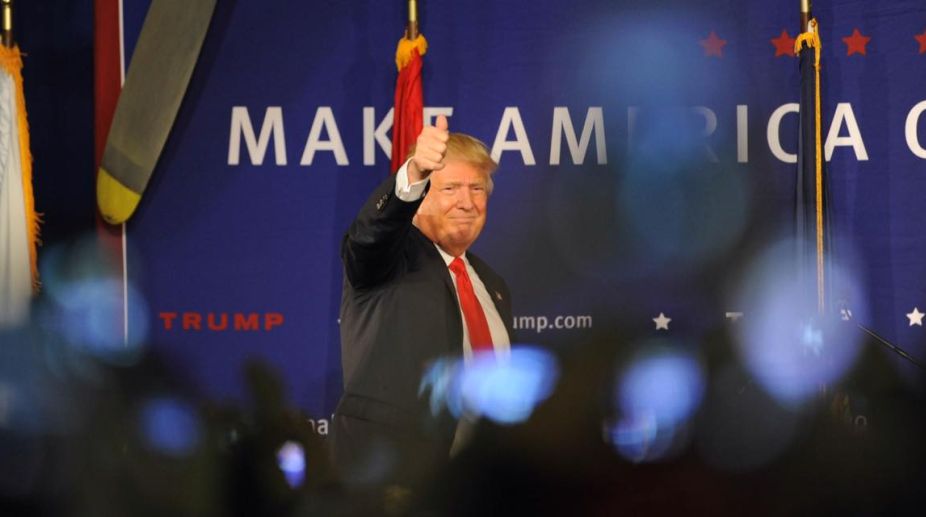Donald Trump's debunking of NATO as “obsolete” — four days before his inaugural — is of a piece with his earlier criticism of the United Nations as an “anachronism”. Small wonder that the outgoing Secretary of State, John Kerry, has been provoked to advance a word of caution, specifically that the President-elect ought to rein his views — “I thought, frankly, it was inappropriate for a President-elect of the United States to be stepping in to the politics of other countries in a quite direct manner.”
It is the timing of the reckless utterances that has almost immediately caused a flutter in the roost — in-house as well as trans-Atlantic. Indeed, US-Europe dealings are tense even before Friday's grandstanding. While his commitment to NATO is deeply uncertain, he has given strong hints that he will not support EU cohesion once in office.
His contention that the North Atlantic alliance “hadn't taken care of terror” and the suggestion that other European countries would follow in Britain’s footsteps was an unsolicited piece of advice on the affairs of other countries. Only Russia appears to have concurred with his perception of NATO.
Trump’s geostrategy could scarcely have been more reckless, prompting a blunt retort from Angela Merkel and Fracois Hollande. “We Europeans have our fate in our own hands,” was the German Chancellor’s snub. Still more scathing was President’s Hollande's response — “Europe did not need to be told what to do by outsiders. It will be ready to pursue trans-Atlantic cooperation, but it will be based on its interests and values. It does not need outside advice to tell it what to do.”
In the net, Trump's foreign policy is under a cloud even before the new Secretary of State has assumed office. Not for him to question the cohesion of Europe, and Monday’s verbal duel at the level of Heads of State is embedded in the intemperate outbursts of a President-elect, targeting an entity that has been the bedrock of international relations.
Indeed, Trump’s criticism of NATO has been stoutly resented not least because it is a subjective reflection on an issue that is as crucial as it is sensitive across the borders of the Continent, notably the political and military aspect of the alliance.
Foreign ministers of both EU and NATO have already emitted strong signals that “there has been no easing of tensions”. America's relations with Germany have soured further still with Trump's criticism of Merkel's handling of the refugee crisis — in itself a profoundly humanitarian gesture — and has threatened a 35 per cent tariff on BMW cars imported to the US.
The German official reaction — “There is a link between America’s flawed interventionist policy, especially the Iraq war, and the refugee crisis” — conveys a harsh truth to the US President-elect.











